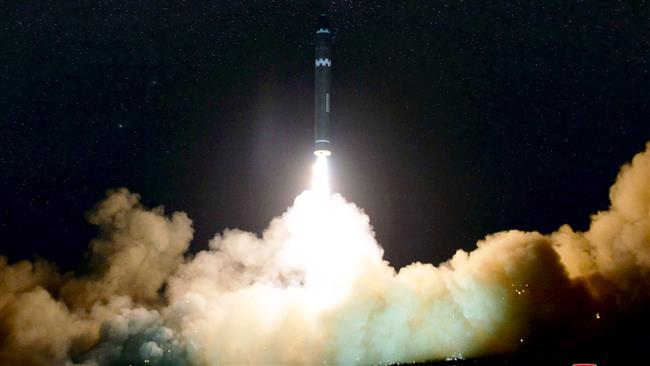Russia FM calls on US, N Korea to start talks, says Moscow ready to mediate
Russia has called on the United States and North Korea to start negotiations aimed at putting an end to tensions on the Korean Peninsula, days after the UN slapped a new round of sanctions on Pyongyang over its nuclear weapons program.
Russian media on Monday quoted Foreign Minister Sergei Lavrov as saying that Moscow is ready to mediate such talks.
Lavrov gave assurances that Russia “will never tolerate nor welcome” Pyongyang’s ambition to become a nuclear state, but said attempts to pressure and blockade North Korea were equally dangerous.
Instead of drawing “red lines” and trying to punish Pyongyang, steady diplomatic efforts must be made to denuclearize the Korean Peninsula, he added.
The top Russian diplomat further warned those countries pursuing a strict blockade on North Korea that “the execution of such a plan would cause a genuine humanitarian disaster.”
China urges ‘constructive efforts’
Meanwhile, China, which is North Korea’s main trade partner, called for all the countries on both side of the dispute to “make constructive” efforts to ease tensions.
“In the present situation, we call on all countries to exercise restraint and make proactive and constructive efforts to ease the tensions on the peninsula and appropriately resolve the issue,” Chinese Foreign Ministry spokeswoman Hua Chunying said in Beijing on Monday.
Hua pointed out that the new round of UN sanctions reinforced the previous ones; however, they were not designed to affect ordinary people, normal economic exchanges and cooperation, or humanitarian aid.
Pyongyang on November 29 tested an intercontinental ballistic missile (ICBM), which it said put the US mainland within the range of its nuclear weapons.
The test prompted the UN Security Council to unanimously impose a new round of sanctions against the country, which restrict fuel exports to the North and demand the repatriation of its nationals working aboard, mostly in China and Russia.
North Korea’s Foreign Ministry said the new UN sanctions were an act of war and tantamount to a complete economic blockade against the nation.
Pyongyang has repeatedly said the US-backed international bans cannot prevent it from developing its nuclear military program. It views its ballistic missiles and nuclear weapons as a deterrent against foreign aggression.
China and Russia, which are viewed as traditional allies of the North, have criticized Pyongyang’s missile and nuclear tests.
They have backed UN sanctions against North Korea, but say such punitive measures should not affect the lives of ordinary people in the country.
Earlier this month, Russian Deputy Foreign Minister Igor Morgulov said that Moscow was not ready to sign up to draconian measures set forth in US-drafted sanctions that would strangle North Korea economically.
Israeli strikes on north Gaza hospital ‘extremely dangerous, terrifying’: Director
VIDEO | Yemen targets Tel Aviv with Palestine 2 missiles
Pezeshkian: Iran resolved to complete North-South Transport Corridor
VIDEO | Iran-Syria: For Resistance
Qassam Brigades claims killing 3 Israeli troops in northern Gaza
More alive than ever: Sayyed Hassan Nasrallah's legacy grows stronger in martyrdom
Occupation of Syria’s highest peak Mount Hermon part of ‘Greater Israel’ project
Iran: Syrian people will decide their future without foreign interference












 This makes it easy to access the Press TV website
This makes it easy to access the Press TV website